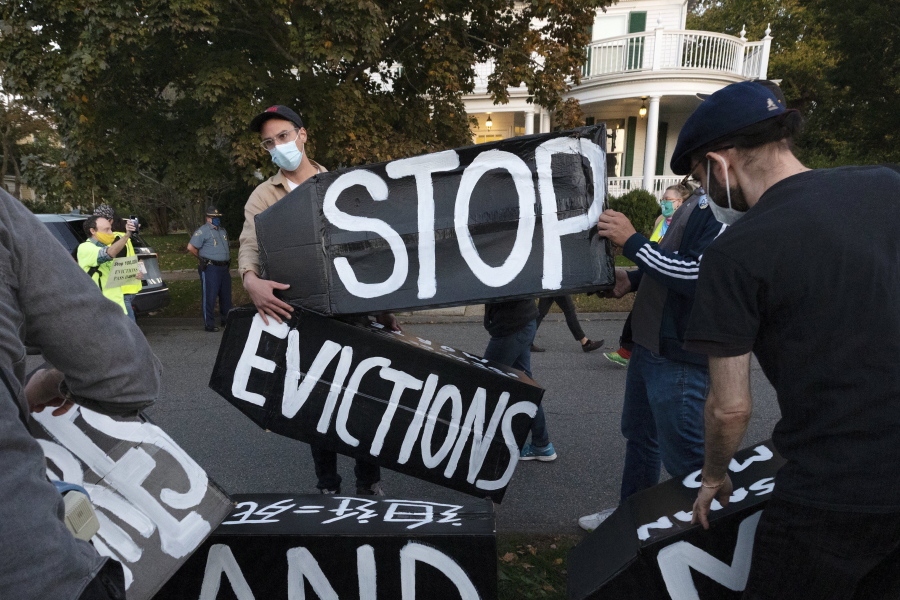PORTLAND — A federal freeze on most evictions enacted last year is scheduled to expire July 31, after the Biden administration extended the date by a month. The moratorium, put in place by the Centers for Disease Control and Prevention in September, was the only tool keeping millions of tenants in their homes. Many of them lost jobs during the coronavirus pandemic and had fallen months behind on their rent.
Landlords successfully challenged the order in court, arguing they also had bills to pay. They pointed out that tenants could access more than $45 billion in federal money set aside to help pay rents and related expenses.
Advocates for tenants say the distribution of the money has been slow and that more time is needed to distribute it and repay landlords. Without an extension, they feared a spike in evictions and lawsuits seeking to boot out tenants who are behind on their rents.
As of June 7, roughly 3.2 million people in the U.S. said they face eviction in the next two months, according to the U.S. Census Bureau’s Household Pulse Survey. The survey measures the social and economic effects of the pandemic every two weeks through online responses from a representative sample of households.
Here’s the situation in Oregon:
WHAT’S THE STATUS OF EVICTION MORATORIUMS IN STATE?
Oregon is one of several states that enacted a moratorium last year halting eviction proceedings for residents who have experienced financial hardship during the COVID-19 pandemic. However, the measure expired in June. As experts warned about a mass wave of evictions in the state, lawmakers and the governor passed and implemented additional safety nets for struggling tenants.
WHAT’S BEING DONE TO HELP PEOPLE FACING EVICTION?
Oregon set aside $200 million in federal emergency assistance to help tenants and landlords with current and outstanding rent. Based on data from Oregon Housing and Community Services, approximately 15,000 households have completed applications for rent assistance.
While Oregon has millions of dollars available to pay past-due rent, high demand created a backlog that officials said would not be cleared before the end of the state eviction moratorium. As a result, in June Oregon lawmakers passed a “Safe Harbor” amendment on Senate Bill 278 to pause evictions. Under the amendment, tenants who are unable to pay July or August rent will not be evicted for 60 days if they provide proof to their landlord that they have applied for assistance.
In addition, Multnomah County commissioners voted to extend the “Safe Harbor” amendment through the end of September.
HOW ARE THE COURTS HANDLING EVICTION HEARINGS?
As the state braces for evictions, courts are also hastily preparing for an influx of evictions.
“We are closely monitoring the situation, but there continue to be a lot of unknowns and variables that will affect court workload and processes,” said Todd Sprague, a spokesperson for the Oregon Judicial Department.
The Chief Justice Order directs courts to schedule eviction proceedings “as soon as practicable,” but allows them to schedule first appearances within 14 days and any trial within 30 days.



